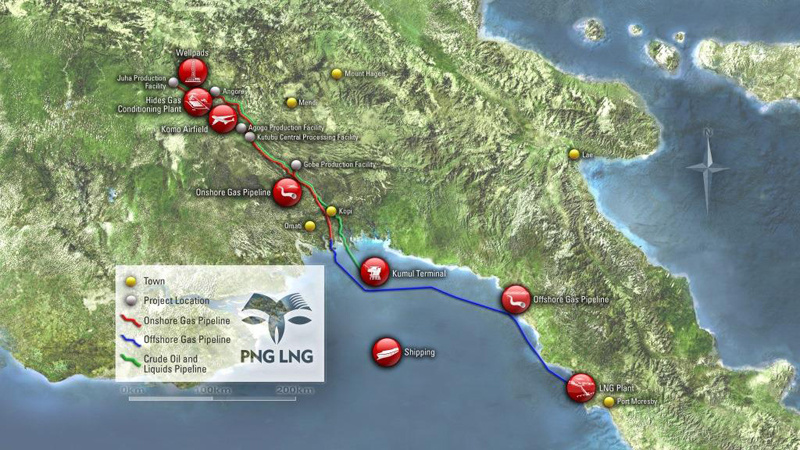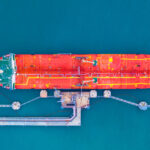All stock offering would give Woodside growth potential
Woodside Petroleum (ticker: WPL), Australia’s largest independent oil and gas company, announced that it has made a non-binding offer for Oil Search Ltd. (ticker: OSH) under which Woodside would acquire all of the shares in Oil Search for a consideration of one Woodside share for every four Oil Search shares, according to a company release. While Oil Search said that it would consider the offer, “there is no guarantee that a binding proposal can be agreed between the parties.”
The offer of one Woodside share for every four Oil Search shares works out to approximately A$11.6 billion ($8.1 billion) at Monday’s close, subject to Woodside gaining a period of exclusivity to look at Oil Search’s financial books and gaining the support of key stakeholders in the company. The deal would be a record for Australia’s energy sector, but analysts and investors viewed it as a low-ball offer, reports Reuters.
The premium offered by Woodside in the deal was 14% based on Monday’s close, and a 23% premium on the average share prices of the companies’ over the three months before August 27. Energy takeovers usually go for premiums of 30%-40%, according to John Hirjee, analyst at Dutsche Bank.
“It’s a first shot. The premium being offered looks very modest,” said Rohan Walsh, Karara Capital portfolio manager.
A takeover of Oil Search would instantly boost Woodside’s production by about 30% and offer low-cost development opportunities in contrast to the two projects it is considering building: Browse floating LNG of Australia and Kitimat LNG in Canada. Browse contains contingent resources (2C) of 15.4 Tcf of dry gas and 453 million barrels of condensate, while Kitimat is expected to have an initially capacity of about 700 million cubic feet of liquefaction, but neither project is expected to come online during this decade.
PNG LNG could fill in the gaps
By merging with Oil Search, Woodside would gain a 29% stake in the Papua New Guinea (PNG) LNG project, which would go a long way in providing growth opportunity for Woodside while it finishes its other major LNG projects.
“It makes sense for Woodside – a company that’s ex-growth that’s looking for the next leg,” said Ric Ronge, a portfolio manager at Pengana Capital, which owns stakes in Woodside and Oil Search.
The PNG LNG Project includes gas production and processing facilities in the Southern Highlands, Hela, Western, Gulf and Central Provinces of Papua New Guinea. There are over 700 kilometers (435 miles) of pipelines connecting the facilities, which include a gas conditioning plant in Hides and liquefaction and storage facilities near Port Moresby with capacity of 6.9 million tons per year, according to ExxonMobil (ticker: XOM), which holds a one-third stake in the project.
PNG LNG can produce and ship a cargo for just under $10 per MMBOPD, compared with $30 per MMBOE for Browse, according to analysts’ estimates. The low cost of the PNG project makes it even more attractive to Woodside during this current low price environment. A merger would also give Woodside a 23% holding in PNG’s biggest undeveloped gas prospect, the Elk and Antelope fields.

In its press release, Oil Search said that factors like the project’s low costs and expansion opportunities would have to be considered while it looked at Woodside’s offer. “This, combined with the company’s low operating cost producing assets, reserves upside, significant discovered resources and exploration acreage position provide substantive scope for capital growth … Oil Search shareholders are entitled to an offer which adequately reflects this value potential,” the press release read.
One of the key shareholders Woodside will need to convince of the value of the deal is PNG’s government, which is Oil Search’s second largest shareholder. A spokesman for PNG Prime Minister Peter O’Neill said the government was waiting for a full briefing on the offer and would make a decision based on the national interest. Analysts have said that Woodside is already talking with the PNG government in order to move forward with the deal. The PNG government, which bought into Oil Search last year at A$8.20 a share, will likely press for more than Woodside’s initial offer.
With Woodside’s shares at $30.58 on Monday, the 0.25 exchange of Woodside stock for every Oil Search share works out to an implied value of about $7.65 per share, about 7% lower from where the PNG government bought into the project.
Oil Search shares leapt as much as 17% to A$7.87 after the proposal was announced, trading above the implied value of the offer, suggesting investors expect it will have to raise its bid as well. Woodside’s shares fell following the announcement of the deal.







